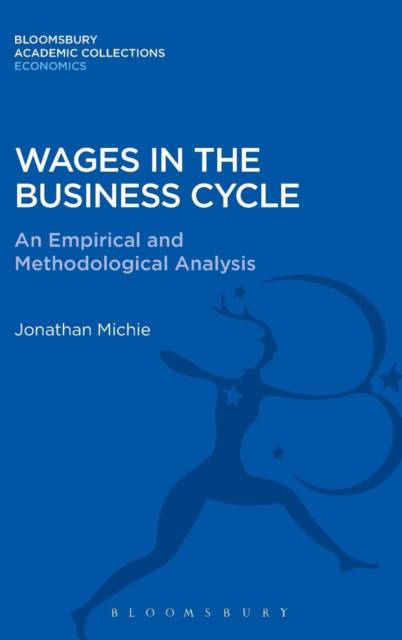
- Afhalen na 1 uur in een winkel met voorraad
- Gratis thuislevering in België vanaf € 30
- Ruim aanbod met 7 miljoen producten
- Afhalen na 1 uur in een winkel met voorraad
- Gratis thuislevering in België vanaf € 30
- Ruim aanbod met 7 miljoen producten
Zoeken
€ 322,45
+ 644 punten
Omschrijving
During prolonged economic recessions when the normal cyclical expansion of output fails to materialize, the topic of the 'cyclical behaviour of wages' has emerged as an area of debate. In 1985, the British Treasury claimed that academic studies into the cyclical behaviour of wages demonstrated that a cut in wages would increase employment. Wages in the Business Cycle contests this argument by presenting the results of original, empirical work which illustrates the absence of any systematic empirical regularity to wage movements over the business cycle.
Jonathan Michie argues that the re-emergence of this debate must be seen within the context of the theory of the 'labour demand function', representing an attempt to challenge the Keynesian theoretical assumptions implicit in the bulk of applied macro economic work up to the late 1970s.
Jonathan Michie argues that the re-emergence of this debate must be seen within the context of the theory of the 'labour demand function', representing an attempt to challenge the Keynesian theoretical assumptions implicit in the bulk of applied macro economic work up to the late 1970s.
Specificaties
Betrokkenen
- Auteur(s):
- Uitgeverij:
Inhoud
- Aantal bladzijden:
- 256
- Taal:
- Engels
- Reeks:
Eigenschappen
- Productcode (EAN):
- 9781472513182
- Verschijningsdatum:
- 9/01/2014
- Uitvoering:
- Hardcover
- Formaat:
- Genaaid
- Afmetingen:
- 156 mm x 234 mm
- Gewicht:
- 471 g

Alleen bij Standaard Boekhandel
+ 644 punten op je klantenkaart van Standaard Boekhandel
Beoordelingen
We publiceren alleen reviews die voldoen aan de voorwaarden voor reviews. Bekijk onze voorwaarden voor reviews.







